Parts Of The United States Have Banned These Cute Yet Unusual Creatures
The world is full of extraordinary pets that can bring joy, happiness, and love to your household. Dogs, cats, and fish are the top three most popular pets in the United States. Exotic pets – such as reptiles, amphibians, and birds – are also popular but are banned in many parts of the country.
Pets are such a big responsibility. So before owning one, you’ll need to do your research about the laws in your locale and consider what types of animals are allowed in your state. To make your research easier, we’ve gathered a list of pets that are actually prohibited in certain parts of the US.
Fennec Foxes
Illegal Locations: Minnesota, Missouri, Nevada, & Washington
The Fennec fox is one of the most popular exotic animals on Instagram. Not only does it have an adorable look, but the Fennec is also the smallest fox breed. It has a pair of huge ears, giving it a unique and charming look.
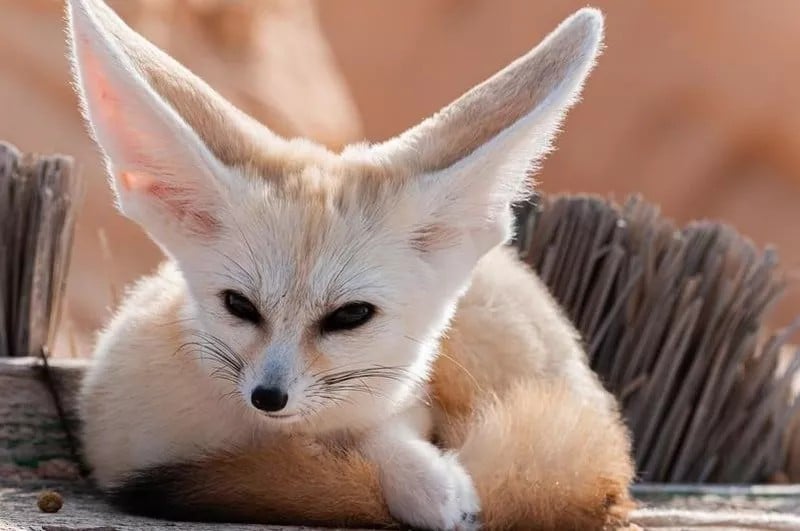
Getty Images
A few states have made it illegal to keep them as pets, and others ban all exotic animals, so it might not be a good choice for your household. Sadly, because of the illegal nature of their sale, Fennec foxes are often smuggled from their native habitat in the Sahara and North Africa, causing habitat loss in the process.
Certain Kinds of Snakes
Illegal Locations: Many States
Snakes live all over the world, and there are at least 3,000 different species. You can find plenty of snakes that are safe and legal to own as pets, but you should avoid a few of them because they’re banned in the US.
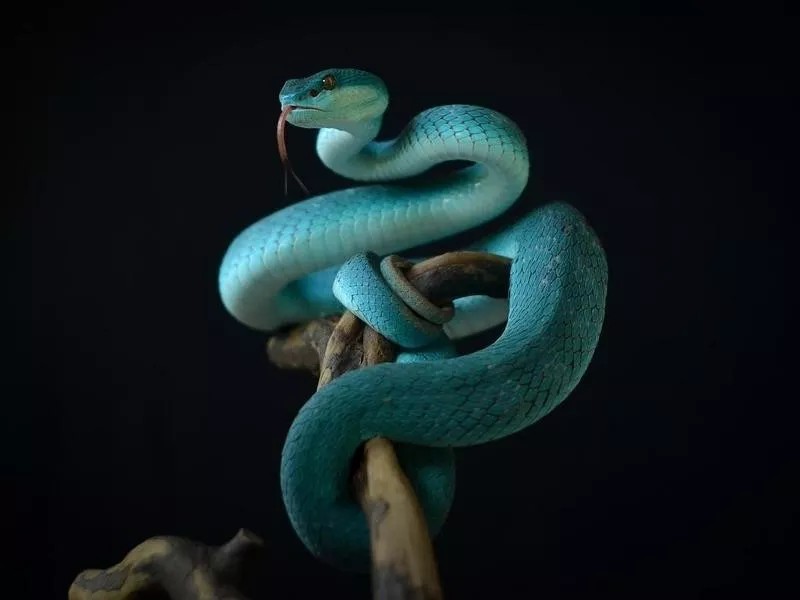
Getty Images
In 2012, the US government made it illegal to import Burmese pythons and other large snakes into Florida. A few years later, the feds banned four species of anaconda and boa constrictors as well. If you are thinking of getting a snake for a pet, please consider one that is not dangerous to humans.
Micro Pigs
Illegal Locations: Most U.S. Cities (including New York City)
They’re just too cute for words! As Buzzfeed reported, the trend of keeping pet pigs has been slowly but surely gaining momentum over the past few years. Despite bans that have been instituted in cities across the country, the so-called “micro pig” trend is continuing.
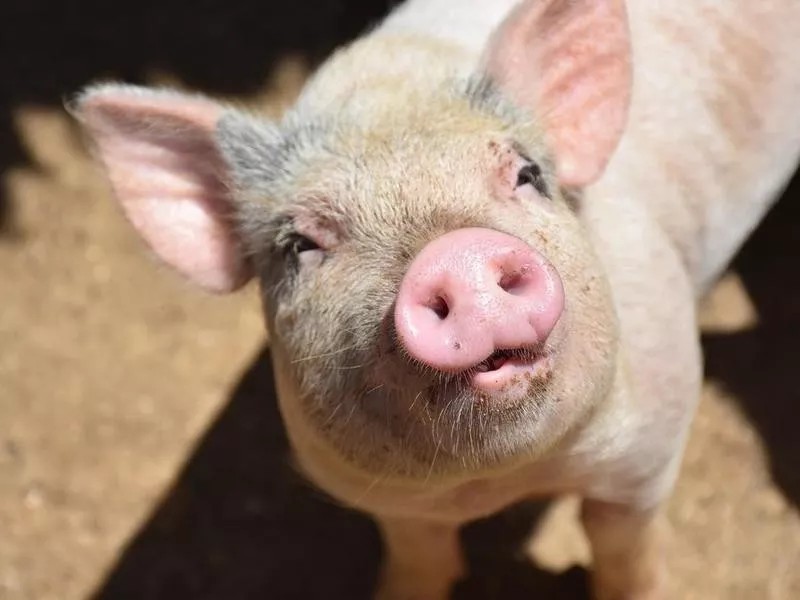
Getty Images
Certain cities, such as New York, ban the keeping of pigs in residential areas because of their tendency to become aggressive and the potential for them to contract rabies. Additionally, most governments consider pigs to be livestock, which should not be kept in cities.
Fake Service Dogs
Illegal Locations: Many States
While dogs are loved by many people in the United States, some dog owners abuse the system to take their pets into public places where only service animals are allowed. They take advantage of the law by dressing up their pets in fake service dog vests and badges.

Twenty-three states have passed laws that give penalties, including fines and even jail time, to owners who illegally misrepresent their pets as service animals. This information has been confirmed by David Reischer, the CEO of Legal Advice. Some of the states include Arizona, California, Colorado, Florida, Iowa, Idaho, Kansas, Maine, and Michigan.
Endangered Tigers
Illegal Locations: 21 Different States!
The Netflix documentary series Tiger King explored the animal trade – specifically, the business of breeding big cats. While most found fault in the owners’ sheer number of animals, the documentary also discussed an inherent danger that comes from owning any number of large cats.
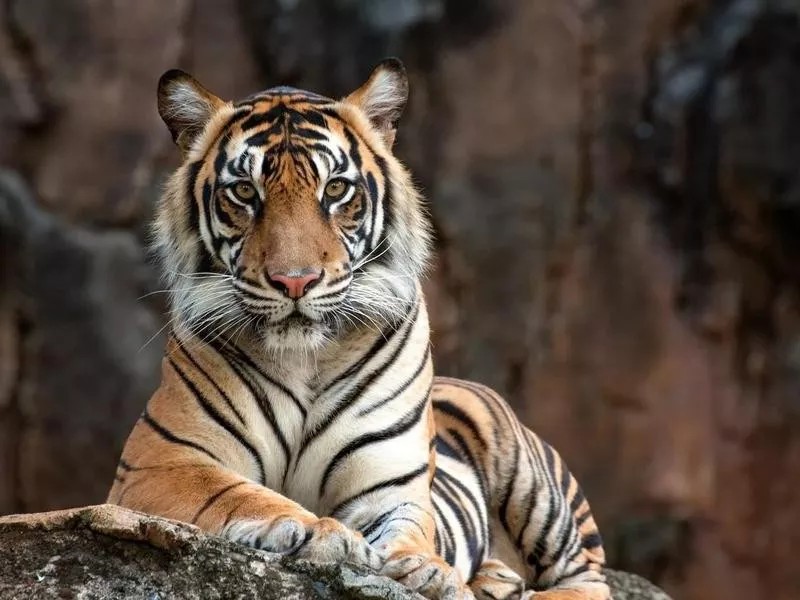
Getty Images
Twenty-one states ban all dangerous exotic pets, including tigers. However, Nevada, Wisconsin, Alabama, North Carolina, and South Carolina have relaxed laws regarding exotic pets. Though we don’t recommend it, if you really wanted to become the next Joe Exotic, your best bet would be to head to one of those states.
Wild Bears
Illegal Locations: Most States
The three species of bears native to North America include the brown bear or grizzly, the black bear, and the polar bear. Though most Americans are used to seeing these animals in nature shows and at zoos, some people keep them as pets.
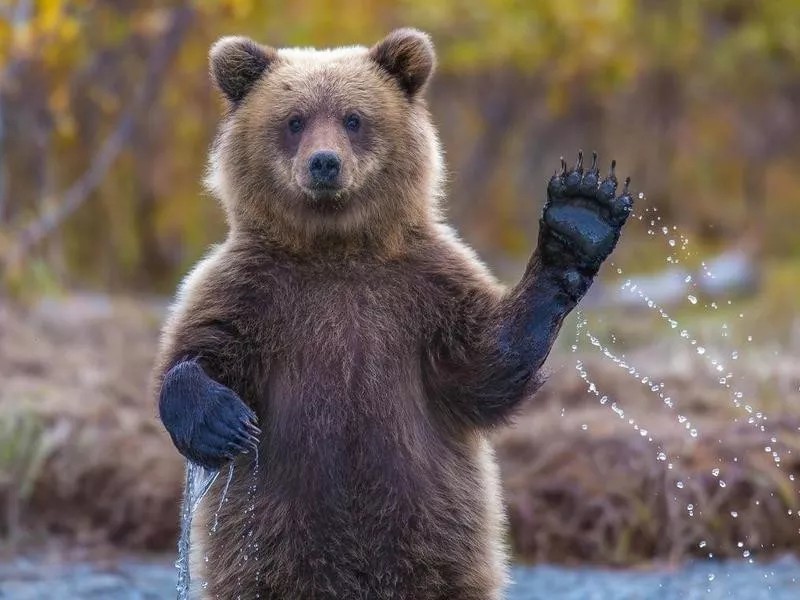
Getty Images
Most states understandably ban people from keeping bears at home, but six states – namely, Nevada, Oklahoma, Wisconsin, Alabama, North Carolina, and South Carolina – allow residents to decide for themselves whether or not they want to have a bear as a pet.
Tiny Shrews
Illegal Location: California
Why would anyone legislate against keeping these cute, harmless creatures as pets? The answer is, of course, to protect them. It’s illegal to keep certain shrew species in California for the sake of their conservation status. Since they are on the brink of extinction, human interference could hurt their chances of long-term survival.

phototrip/Getty Images
The Buena Vista Lake shrew is a hamster-sized rodent that lives only in Kern County, California. Due to agriculture and the loss of genetic diversity, the number of these animals has been reduced to dangerously low levels. In response to this, the state passed an act to ensure the survival of this little-known animal.
Wild Wolverines
Illegal Location: California
Besides shrews, California also bans keeping wild animals like wolverines. Wolverines are prohibited because their presence in areas outside their natural range poses a threat to native wildlife and potentially to public safety. Ravenous and fearless, the North American wolverine is the largest weasel on earth, weighing up to 40 pounds.
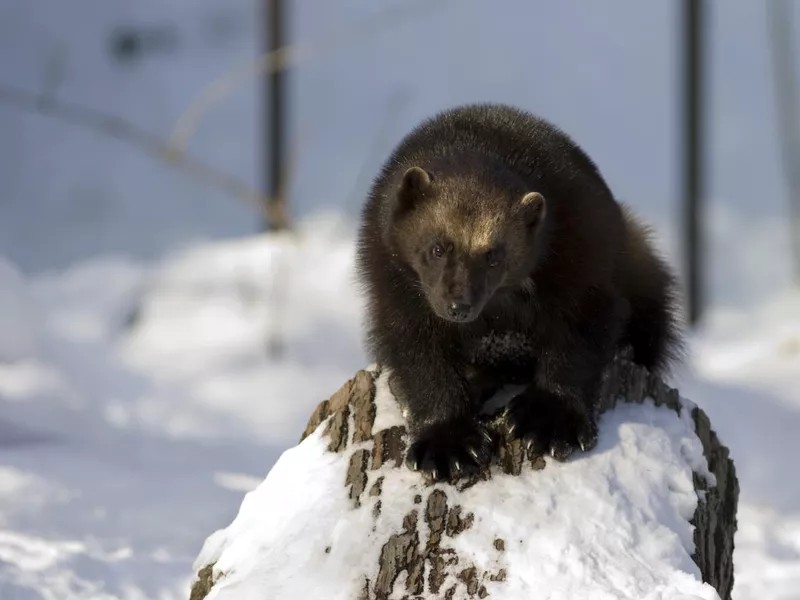
AYImages/Getty Images
Also known as the mountain devil, it fearlessly defends itself against larger predators and has even been known to attack bears. Although the main reason people are not allowed to keep such creatures is centered around safety, it’s also worth noting that their wolverine fur was once in high demand.
Falcons, Unless You Are Dedicated to Conservation
Illegal Locations: Every State
While some birds of prey, like red-tailed hawks, are legal to own as pets in most states, falcons aren’t. Falcons are only permitted to be kept by licensed falconers who have extensive training. You can apply for a falconer’s permit, but you’ll need to do more than just pass a test.

FRANKHILDEBRAND/Getty Images
Falconry is centered around preserving wildlife by keeping the birds in their natural habitat. To legally keep a falcon, you have to dedicate yourself to conservation efforts and become a zoologist. Even if falcons were domesticated, their wildness and powerful beaks would make them difficult to handle as pets.
Raccoons, The Masked Bandit
Illegal Locations: Alabama, Colorado, Massachusetts, Montana, Nevada, North Dakota, & Wisconsin
A handful of states allow you to own a pet raccoon if you have a permit, but the following seven forbid the practice: Alabama, Colorado, Massachusetts, Montana, Nevada, North Dakota, and Wisconsin. Cute and cuddly though they may seem, these masked bandits can cause big trouble.
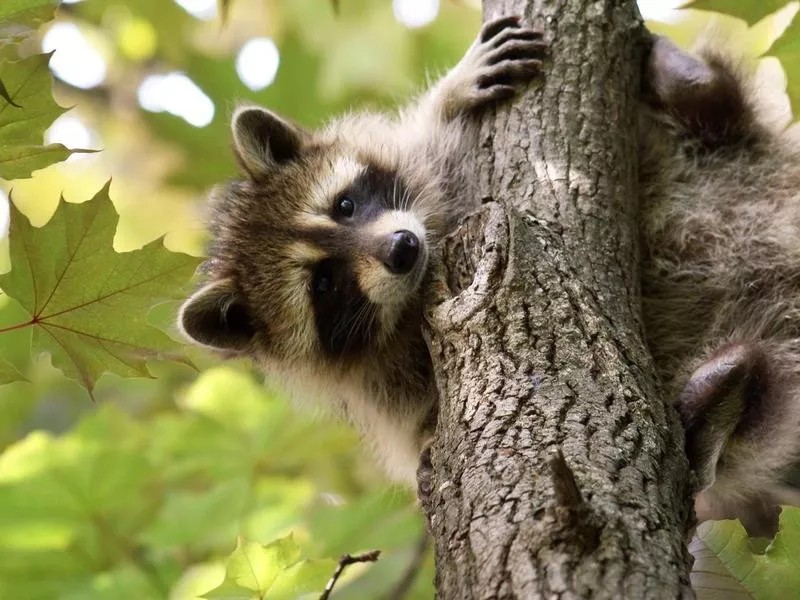
Getty Images
Don’t be fooled by a raccoon’s cuteness. They are high-maintenance pets who don’t like to be kept in cages or small rooms. If you don’t have the right environment for them, make sure you’re prepared to commit to expanding your space before getting one.
Antelope's, But Some Permits Are Allowed
Illegal Location: Wyoming
Wyoming’s wildlife authorities made the move to ban big-game and trophy animal hunting. Trophy animals include apex predators such as bears, mountain lions, and wolves. Meanwhile, various deer species, moose, antelope, and mountain goats are considered big game animals.

KenCanning/Getty Images
Antelope are not endangered in the United States. However, they are not native, so if they are kept as pets, there’s the chance that they could spread diseases to local livestock. Some states do allow antelopes to be kept, so long as owners secure a permit.
Bighorn Sheep
Illegal Locations: California & Wyoming
Bighorn sheep are on the long list of animals banned in California, and similar regulations are in place in Wyoming. Bighorn sheep don’t represent any harm to public safety or agriculture, but their existence plays an important role in the preservation of other species in their natural habitat.
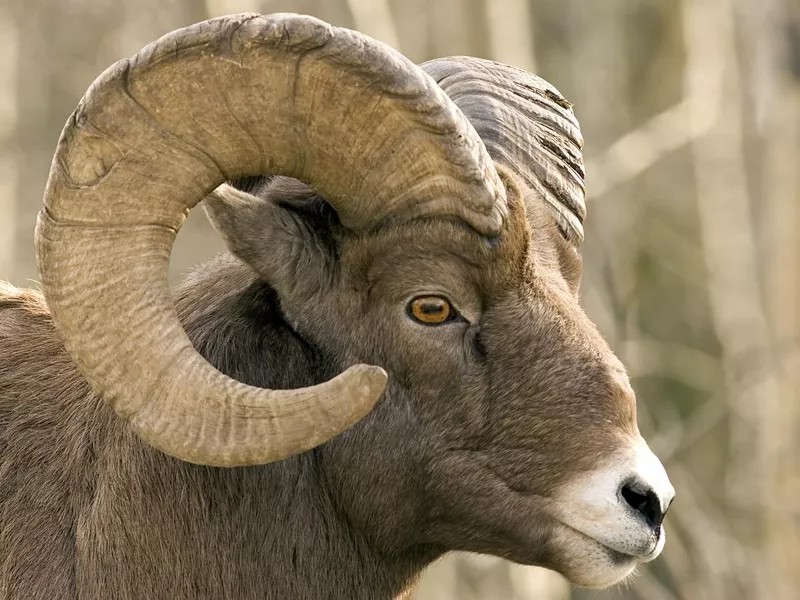
tulissidesign/Getty Images
These majestic creatures live in mountain ranges throughout the United States and Canada. They are an important part of the food chain for mountain lions, bears, and coyotes. Removing them from their natural range would have serious effects on the predators that hunt them. Luckily, the population of bighorn sheep has remained stable for years.
Quails
Illegal Location: Arkansas
Arkansas residents are not allowed to keep lions, tigers, or bears. But there are other ordinary animals that are banned as well. This list includes rabbits and quail. Strangely enough, bobcats can be kept, but only if you do not have more than six at once!

Dr John A Horsfall/Getty Images
The Arkansas Game and Fish Commission has worked with an organization called Quail Forever to help conserve local quail populations. The organization encourages farmers and landowners to manage northern bobwhite quails that live on their properties in a way that balances land conservation needs and quail preservation efforts.
Giant Elk
Illegal Location: Alabama
Alabama has no specific reason why it bans elk as pets, but those massive antlers should give you a clue. Elk can weigh over 700 pounds. They run fast and can cause severe damage to property, vehicles, and people who get in their way. Sounds like a bad idea for a pet, doesn’t it?
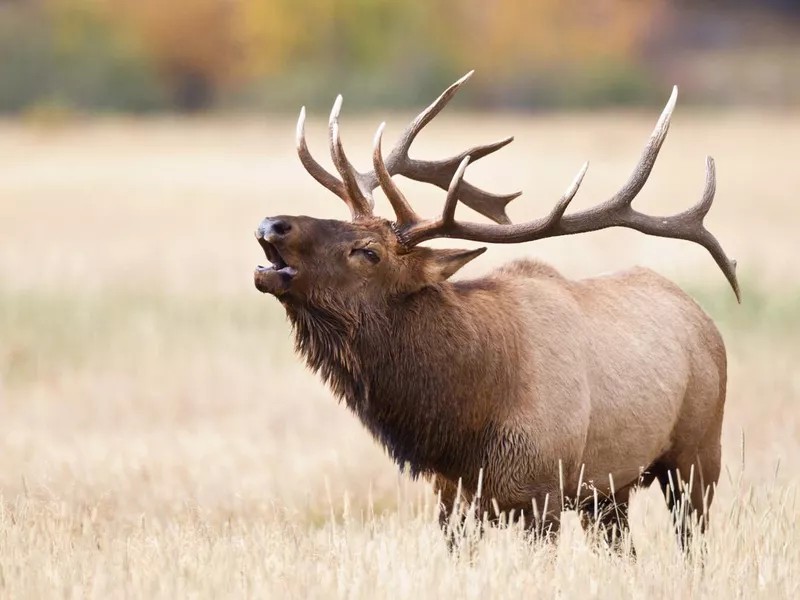
rpbirdman/Getty Images
Cervids, the family in which deer and elk belong, are classified differently from state to state. Some identify them as wildlife, while others consider them livestock. Most states, however, consider them as wild animals and treat them as such instead of lumping them in with less dangerous cattle or horses.
Imported Lions
Illegal Locations: 21 Different States!
Like tigers, lions are rarely kept as pets. However, in the same states where people are allowed to keep tigers as pets (Alabama, Nevada, North Carolina, and South Carolina), you may also see lions kept as pets.
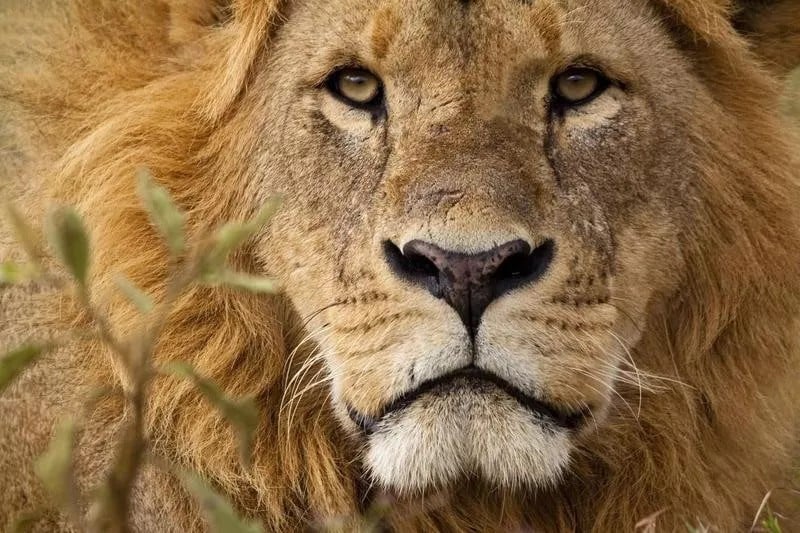
Getty Images
Some states in the United States allow people to obtain licenses for certain large, dangerous animals for commercial purposes. Even with a license, however, most states still do not allow people to have lions and tigers as household pets.
Venomous Reptiles
Illegal Locations: Most States (excluding Arkansas, Georgia, Minnesota, Montana, & Nebraska)
Among the many bizarre laws in the United States, Georgia’s reptile policy is a strange one. Residents cannot keep harmless, nonvenomous snakes such as corn snakes and ball pythons. However, they can get a permit to keep venomous snakes like lethal copperheads.
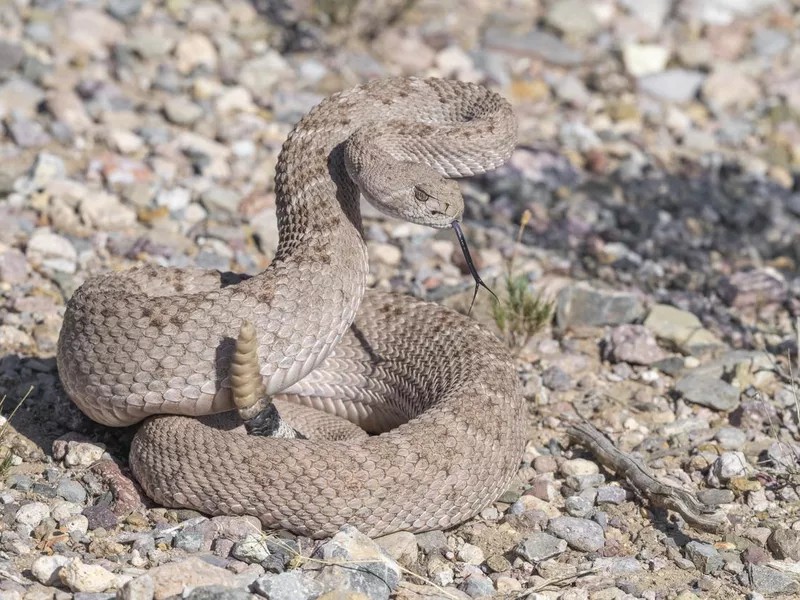
drferry/Getty Images
Many laws forbid Americans from keeping dangerous animals, and for good reason! It’s not a good idea for most people to keep snakes that can cause harm and even death. However, if you have a lot of experience with snakes, you may be able to safely have one as a pet.
Ferrets Due to Some Illnesses
Illegal Locations: California, Hawaii, New York City, & Washington, D.C.
Owning a ferret as a pet can be legal in some states, but several states ban them, including California, Hawaii, New York, and Washington DC. According to Connie Monico – a veterinary technician and owner of The Dog Adventure – ferrets are banned for reasons such as being a potential carrier of rabies and posing a threat to wildlife.

Getty Images
Many ferret owners have found ways to make sure that the creatures are safe to have as pets. According to Monico, ferret owners even take their pets for vaccines, deworming, and spaying or neutering to keep them healthy.
Squirrels
Illegal Locations: Most States
Diana Ludwiczak recalls on her website, How I Got Into Veterinary School, how she was able to see all kinds of exotic pets while studying, but most of them should never have been owned as pets. Even squirrels are banned from being pets in most states in the US.

Getty Images
Despite their cuteness, squirrels are not ideal for domestic life. They like to chew on bark and wood, which means your walls and furniture will be at risk of damage. Ludwiczak recommends contacting a licensed rehabber if you ever find a squirrel that’s been domesticated.
Sugar Gliders
Illegal Locations: Alaska, California, Hawaii, Pennsylvania, St. Paul, MN, & New York City
Sugar gliders are small, cuddly-looking marsupials that can glide through the air like a flying squirrel. Though they look harmless enough to some people, it’s actually illegal to own in many states and cities – such as St. Paul, Minnesota, and New York.
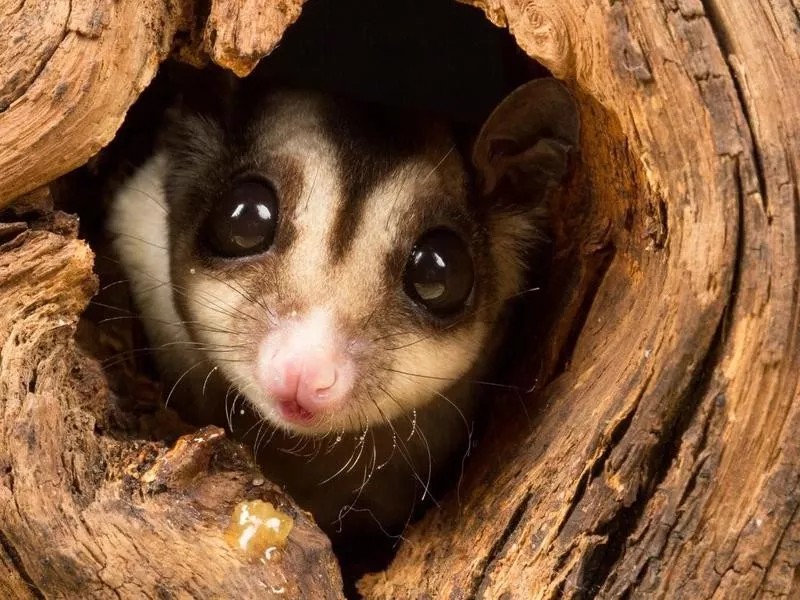
Getty Images
Sugar gliders are native to Australia and New Guinea but have been spotted in several states in the US. These nocturnal creatures, who love sugary substances like sap and nectar, can be difficult to care for because they prefer being outdoors and having room to climb trees.
Vicious Piranhas
Illegal Location: Alabama
The state of Alabama outlaws certain breeds of fish and other aquatic life, which is why it’s illegal to keep piranhas here. Typically found in South America, these predatory fish are not for the inexperienced pet owner as they are potentially harmful.
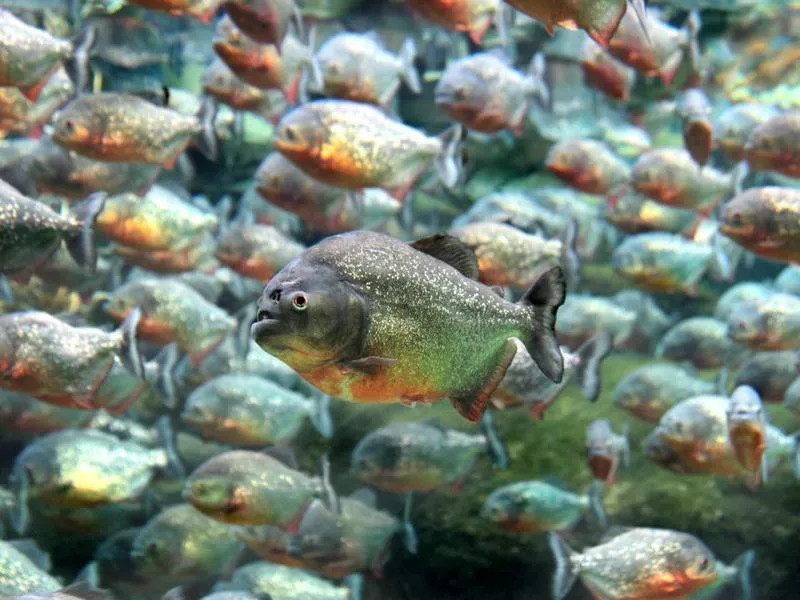
hayatikayhan/Getty Images
If the James Bond film You Only Live Twice is any indication, you’ll want to stay away from piranhas anyway! Its name roughly translates to “biting fish” in Portuguese, and these vicious creatures have powerful jaws that can bite right through flesh.
Powerful Wildebeest
Illegal Location: Colorado
If you want to keep a wildebeest as a pet in Colorado, you’re out of luck. The state’s ban on wild animals includes hogs and other exotic pets like skunks, raccoons, and hedgehogs. However, you may be able to keep some native reptiles. This is according to the Colorado Wildlife Act.
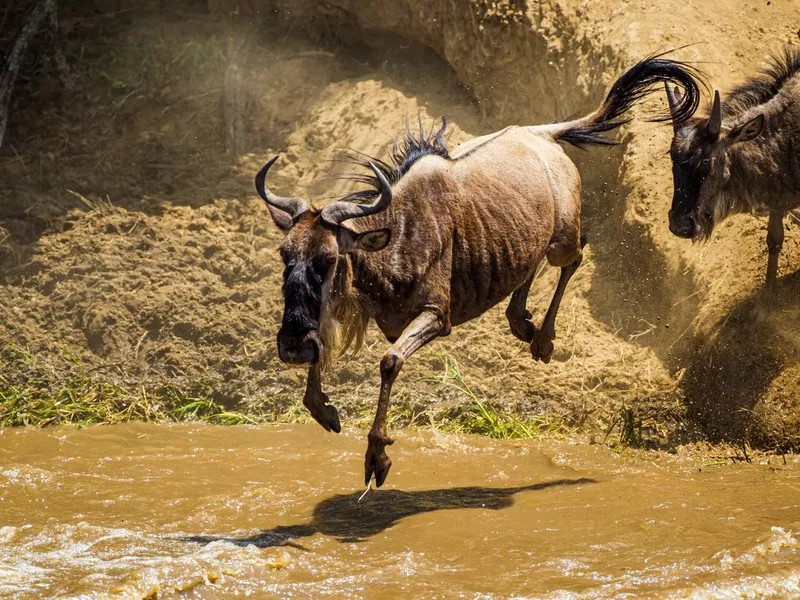
Wayne Marinovich/Getty Images
Wildebeest are large antelopes native to Africa. It is virtually impossible to acquire one legally since importing one in the US is prohibited by law. Furthermore, because these animals live in close quarters with other livestock, they are known to pass parasites and diseases around.
Energetic Jackrabbits
Illegal Locations: Alabama, Arkansas, & Kentucky
Yes, many people keep rabbits as pets, but in Alabama, Arkansas, and Kentucky, you cannot legally own a jackrabbit. Although jackrabbits are in the same family as rabbits, they are actually hares. Compared to their rabbit cousins, they are larger and faster.

KenCanning/Getty Images
The main reason for making these animals illegal is because the state doesn’t want people to capture wild hares and try to turn them into pets. Moreover, the state wants to protect these animals from being taken away from their natural habitat.
Wild Turkeys
Illegal Locations: Alabama, Maine, & South Carolina
If you live in Alabama, forget about keeping a wild turkey as a pet. Maine residents must get written permission from the government to keep most wild birds in their homes, but turkeys are strictly prohibited.
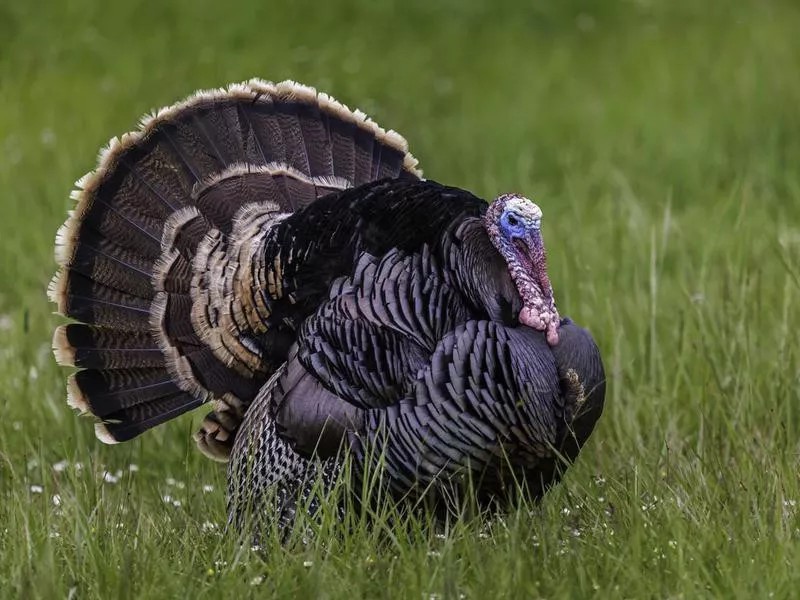
step2626/Getty Images
For the longest time, South Carolina had no restrictions with regards to owning wild animals. That was just until January 1, 2018. As of this date, several species were banned as pets, and wild turkeys were on the list. With this in mind, it always pays to check the laws before buying a pet.
Wild Bats
Illegal Locations: Every State
Bats, which can live for up to 25 years, are illegal pets in America. The United States Fish and Wildlife Service considers some types of bats endangered, meaning you cannot kill them either, even if they fly into your house.
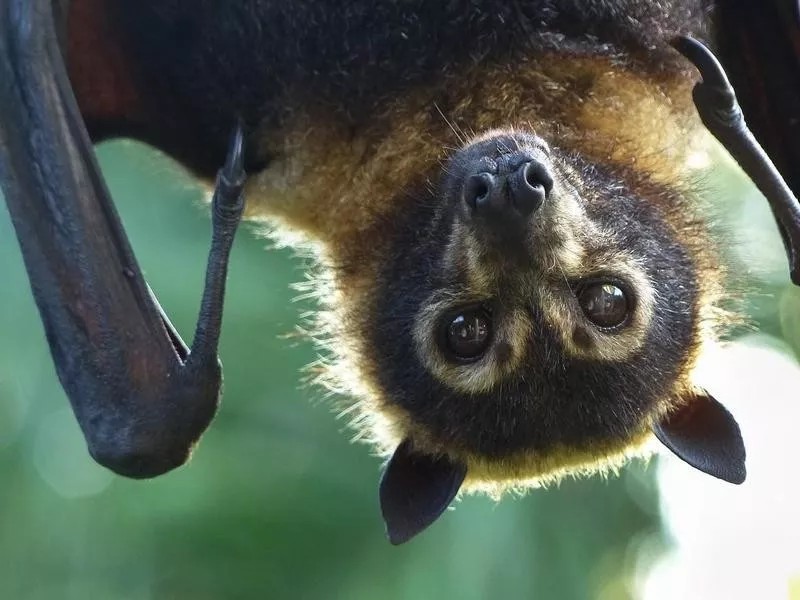
Getty Images
The United States allows no one but licensed professionals, such as researchers and educators, to own a bat. In order to receive a license, you must apply through the Wildlife Education Center in order to prove that you have experience with bats and will be able to provide proper care.
Deer and Moose
Illegal Locations: Alabama, Maine, Nevada, & Wyoming
In some states, such as Alabama, Maine, and Wyoming, deer cannot be kept as pets. The same goes for moose, though in some cases, you can get a permit. If you have to have a pet deer, reindeer are more likely to be legal in your state.

Getty Images
If you’re interested in having a deer as a domestic pet, consider adopting a muntjac, which is about the same size as a medium-sized dog. It’s important to note that deers are social animals, so if you have one as a pet, expect to give it a lot of attention and affection.
Quirky Mongooses
Illegal Locations: Most States
The mongoose is a carnivorous mammal that is native to southern Europe, Africa, and Asia. These creatures feed on insects, lizards, birds, and rodents, which can be both a blessing and a curse. Mongooses are often imported or kept as pets to beat rodent infestations.
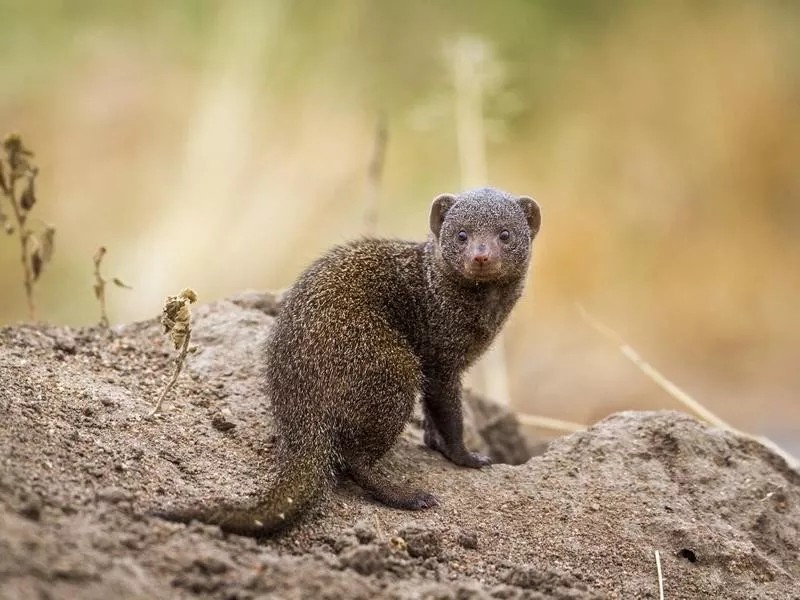
Getty Images
Sounds great, but keep in mind that these animals also feed on native creatures, so they can seriously mess up an area’s ecosystem. This has happened more than once in the past when mongoose colonies were brought in as a pest control strategy, so these days, they’re illegal in most states.
Pit Bulls
Illegal Locations: 1,100+ U.S. Cities
Many cities across the country have made it illegal to keep pit bulls as pets. Iowa, Ohio, and Kansas are among the states with the highest number of pit bull bans, and more than 1,000 cities have some kind of ban against these kinds of dogs.

Getty Images
It’s sad that certain breeds of dogs are banned, and many people argue that the problem with pit bulls is due to how they are raised, not any characteristic innate to the dog itself. The American Society for the Prevention of Cruelty to Animals says that it’s important to treat dogs as individuals and provide them with care and proper training.
Alligators and Crocodiles
Illegal Locations: Most States
If you live in Florida, you’re sure to see alligators in unusual places, like grocery stores and Disney World. But don’t worry – it’s still illegal to own an alligator in most states. Throughout the US, there are several laws designed to protect these reptiles and the public from harm.
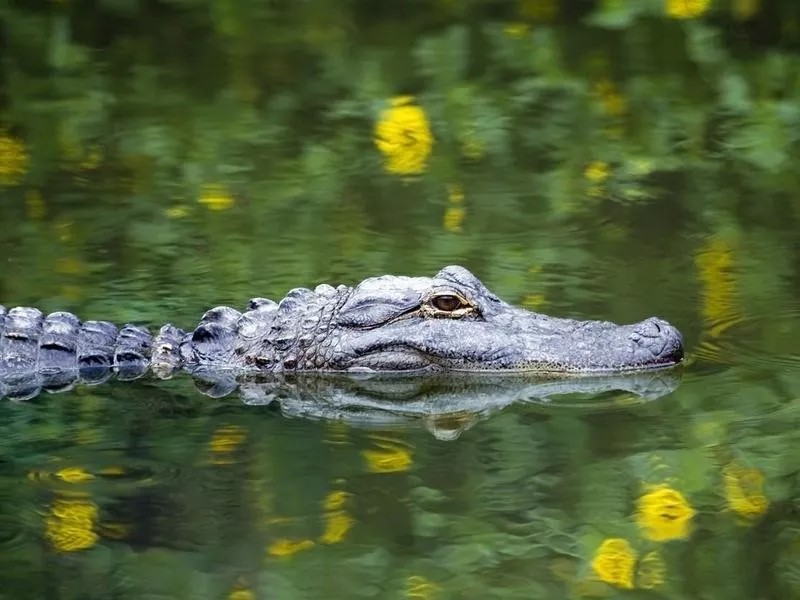
Getty Images
Even if you live in a state where alligator ownership is legal, you’ll need a permit and an enclosure that will keep your pet safely inside. Since alligators grow very quickly, you’ll need to expand the enclosure and ensure the creature can roam freely and be inspected by wildlife officials.
Penguins
Illegal Locations: Every State
If you live in the United States, there are zoos that have penguins. However, penguins are not pets and cannot be kept in homes. Some of them live outside the arctic circle and don’t require freezing temperatures, but they are still protected by the Endangered Species Act.

Getty Images
You can’t keep penguins as pets if you live in the United States, and even if it were legal, they’re not the most affordable or practical animal companions. These animals are social, so you’d need more than one or two. This would get quite expensive since each penguin consumes about 400 pounds of fish per year.
Quaker Parrots
Illegal Locations: California, Colorado, Connecticut, Georgia, Hawaii, Kentucky, Pennsylvania, Rhode Island, Tennessee, & Wyoming
Parrots come in hundreds of species. Unfortunately, many parrot species are at risk of extinction, including the Quaker parrot, which is also known as the monk parakeet. These parrots are native to South America and have become so prevalent that they have formed colonies in Florida, Texas, and New York.
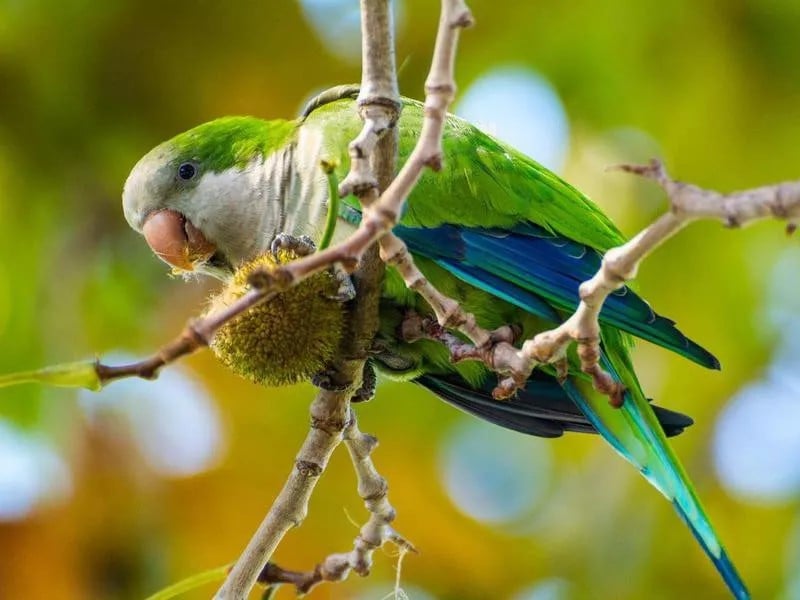
Getty Images
Some people view parrots as pests that destroy crops, leading to the banning of the birds in some states, including California, Colorado, Connecticut, Georgia, Hawaii, Kentucky, Pennsylvania, Rhode Island, and Tennessee. At least 10 states allow them, however, only if certain precautions are followed.
Lorises
Illegal Locations: Every State
Slow lorises are from Southeast Asia and can be readily purchased in Russia and Japan. While you may have seen pictures and videos of slow lorises and their big eyes online, these small primates are not legal to own in the United States.
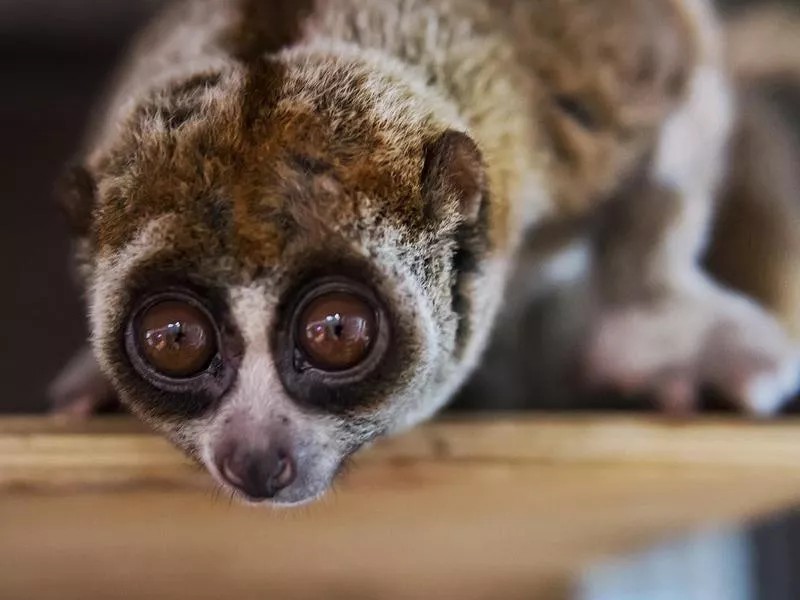
Getty Images
Owning a slow loris as a pet is both unethical and illegal. The animals captured in the wild suffer from poor treatment at the hands of traffickers, who remove their teeth without anesthetic and expose them to high levels of stress.
Tokay Geckos
Illegal Location: Hawaii
Hawaii’s laws on keeping pet reptiles vary. While wild geckos are allowed, the only two species that are illegal to keep in Hawaii are the Day gecko and the Tokay gecko. The latter might soon be banned in other states as well.
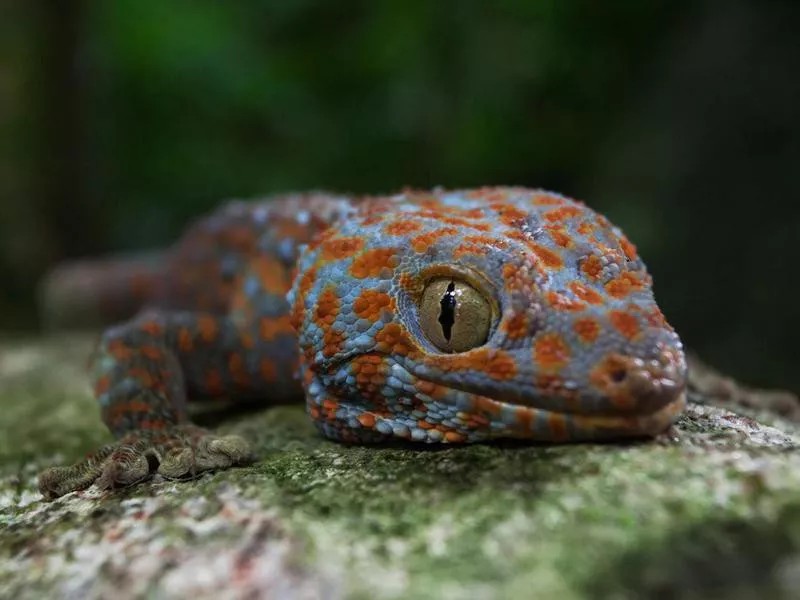
Getty Images
These invasive creatures are known for causing damage to homes and businesses. In fact, geckos are considered ill-tempered and tend to be brought to pet stores by unscrupulous means. Since they’re invasive, it’s best to avoid purchasing this animal, even if you live outside of Hawaii.
Hedgehogs
Illegal Locations: California, Georgia, Hawaii, Pennsylvania, & New York City
They might be famous on the internet, but it is illegal to keep a hedgehog as a pet in several states, including New Jersey and Wisconsin. To have one as a pet in these states, you must get a permit and certificate of veterinary inspection.
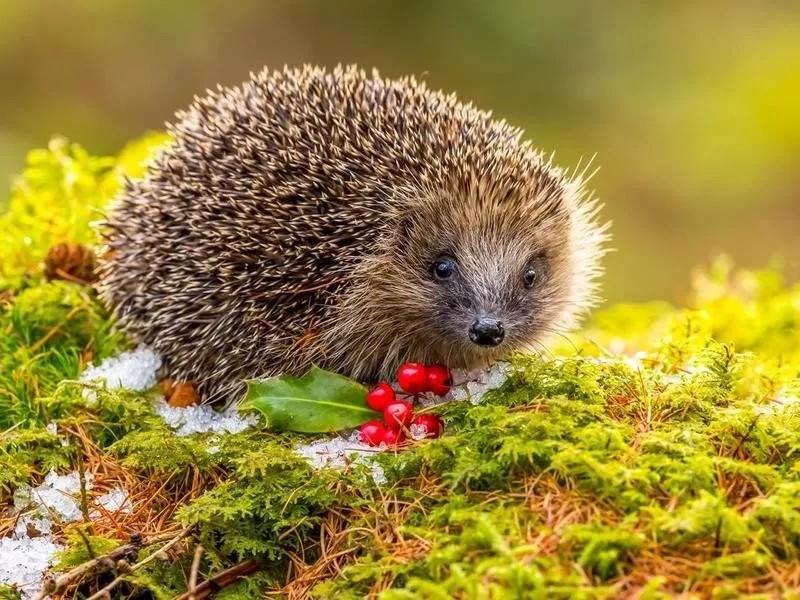
Getty Images
No matter how cute they are, hedgehogs can have a negative impact on local ecosystems and threaten US wildlife. Plus, they often carry salmonella, which may lead to illness in humans. The CDC linked a salmonella outbreak to pet hedgehogs in March 2019.
Small Turtles
Illegal Locations: Every State
Small turtles are linked to salmonella, so in 1975 the United States banned turtles smaller than four inches long. Before the ban, there were about 280,000 turtle-related infections each year, according to NPR. Most of these infections hit young children who kept small turtles as pets.
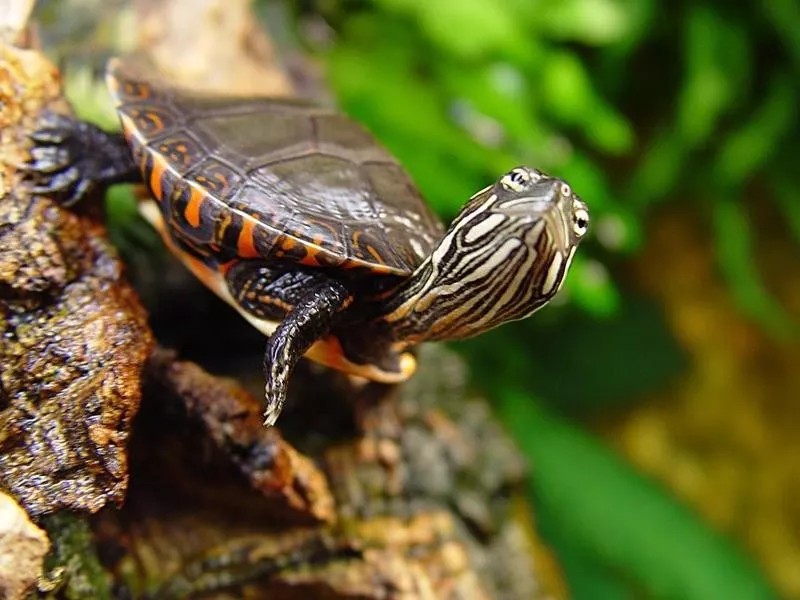
Getty Images
The ban has not been completely effective, and illnesses continue to occur. Between May 2011 and September 2013, tiny turtles were linked to at least eight salmonella outbreaks across 41 US states and territories, including Washington, DC and Puerto Rico, as reported by NPR.
Monkeys
Illegal Locations: Most States
While it is legal to own certain species of monkeys as pets in the UK, the US has a nationwide ban on pet monkeys. This ban is due to the popularity of owning pet monkeys and also to their risk of carrying diseases.

Getty Images
There are many places across America that have specific bans due to concerns over monkey owners’ abilities to properly care for their pets. Also, there are numerous animal rights activists working toward eliminating the illegal trade of monkeys.
Wolf Hybrids
Illegal Locations: Alaska, Connecticut, Georgia, Hawaii, Illinois, Massachusetts, Michigan, New Hampshire, New York, Rhode Island, & Wyoming
The United States government considers a wolf-dog mix to be a domestic animal as opposed to an endangered species, so private ownership of wolf-dogs is not technically illegal. However, several states have laws making it illegal to own a wolf-dog as a pet.

Getty Images
In some states, the animals are considered pets and must be kept under certain standards, including appropriate enclosures and prevention of rabies. Fans of these animals have argued that wolf-dog hybrids are not dangerous because of their wolf nature but because people don’t understand them.
Gerbils
Illegal Locations: California & Hawaii
Gerbils are popular as pets due to their ease of handling and minimal needs. They are especially well suited as pets for children because they are small enough to be held comfortably in a child’s lap. However, they are very strong and can scratch or bite if handled improperly.

Getty Images
Though they are very cute, gerbils are banned in California and Hawaii because officials there believe that if people release them into the environment, they would create havoc by damaging local plants and possibly spreading disease.
Capybaras
Illegal Locations: Most States
The capybara, which can weigh up to 140 pounds, is banned in most states. However, you can get one if you live in Texas or Pennsylvania. In other states, it may be possible to apply for and receive a license to own a capybara.
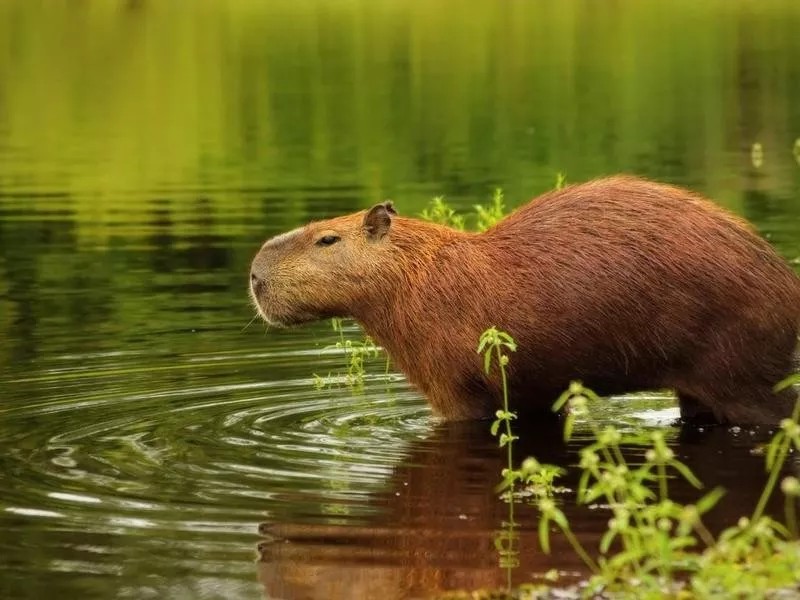
Getty Images
There are a few issues you should consider before owning a capybara. Capybaras are social animals, so it’s best to have more than one. Additionally, you’ll need to provide water for swimming since capybaras are partially aquatic.
Bearded Dragon
Illegal Location: Hawaii
Most states allow ownership of a bearded dragon with a permit. They tend to be decent pets, owing to the fact that they are rather docile creatures, but it stands to reason that states want to make sure you can take proper care of them. However, one state is forced to criminalize them — Hawaii.
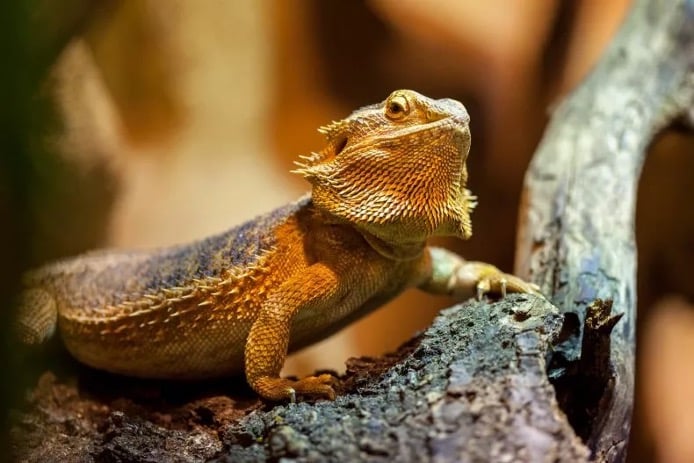
GETTY IMAGES
The reason why Hawaii is the standout is the same reason why hamsters are banned. Bearded dragons are at home in the Hawaiian climate, but they could become an invasive species and harm Hawaii’s ecosystem.
Lemurs
Illegal Locations: Ohio, Florida, North Carolina, & Nevada
Lemurs are downright adorable creatures, and they have a lot of fans. This has led to multiple states having to ban them, and honestly, for good reason. They are banned in Ohio, Florida, North Carolina, and Nevada. However, other states make a point of regulating sales and ownership transferrals of lemurs. While lemurs are very cute, that does not mean they are great pets to own.
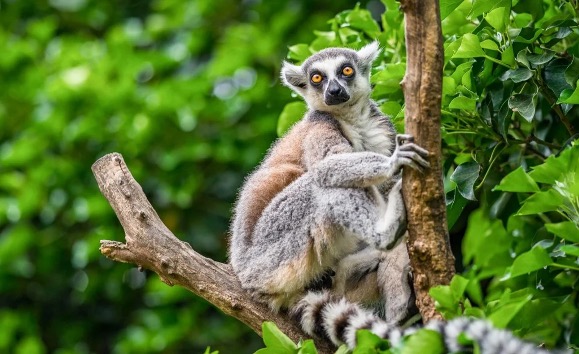
Focus.it
They are highly social creatures, which means that you would reasonably have to have multiple lemurs to ensure that they are taken care of properly. Furthermore, female lemurs emit a powerful, unpleasant odor to attract males, which could also become an issue for the creature’s owner. Even if you only have males, lemurs tend to be aggressive, especially as they age, and generally are pretty darn loud. Worse, you should plan for the possibility that both you and the lemur may give each other diseases. Best to keep these critters wild!
Chausies
Illegal Locations: 19 Different States!
The chausie, created through breeding domesticated cats with jungle cats, are explicitly disallowed in 19 states. This is due to their size, level of activity, and most importantly, the impossibility of domestication. Sad though it may be, a creature that has been wild for thousands of years is just not feasible to domesticate.
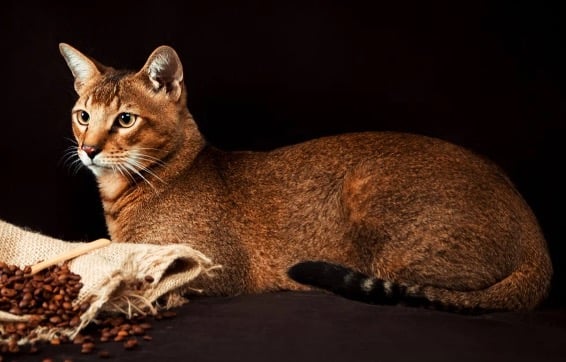
This becomes an additional issue due to the fact that chausies tend to be aggressive, antisocial, and owners have difficulty making them use a litter box. It is simply a kind of pet that is too difficult for most people to properly care for.
Large Primates Over 35 Pounds
Illegal Location: Connecticut
Smaller primates may seem pretty safe, but larger ones can do a lot of damage if they want to. This is why multiple places, Connecticut included, have opted to criminalize ownership. Chimpanzees and gorillas are extremely dangerous, able to kill with relatively little effort.

RollingEarth/Getty Images
For example, a woman in Connecticut was horribly disfigured by her pet chimpanzee, and all she did was touch one of the chimpanzee’s toys (be cautious of looking at pictures, as they are rather horrifying).
African Clawed Frogs
Illegal Locations: Arizona, California, Hawaii, Kentucky, Louisiana, Nevada, New Jersey, North Carolina, Oregon, Virginia, & Washington
African Clawed frogs and African Dwarf frogs resemble each other when they are young. However, African Dwarf frogs remain small, while African Clawed frogs can grow to be as big as bullfrogs. They are also known for their aggressive nature and for carrying a deadly fungus — no thanks!
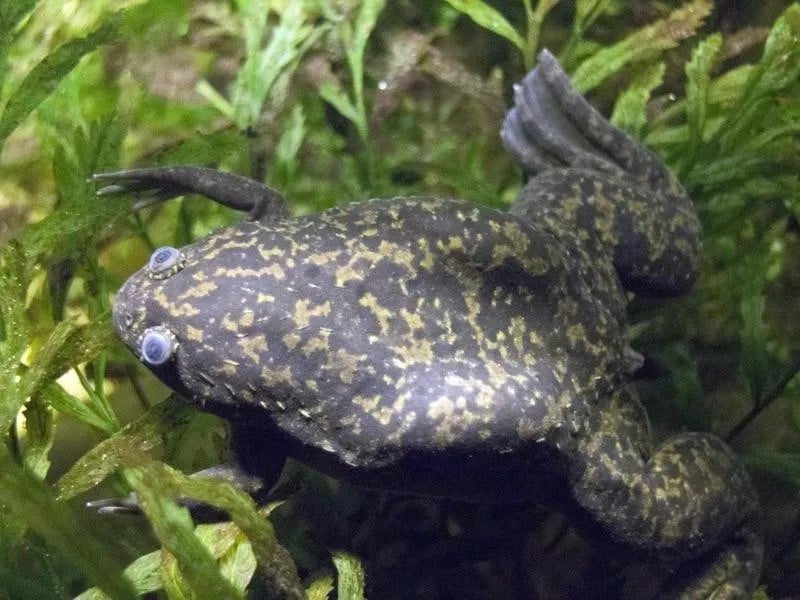
Getty Images
Some states have passed laws banning the possession of these amphibians. In Nevada, if you are caught with an African Clawed frog, you could face six months in jail and a fine of $500.
Wild Zebras
Illegal Locations: California, Nevada, & other states
Look, you’d be hard-pressed to find someone who actually dislikes a zebra, but that does not mean they would make a good pet. Zebras cannot possibly be domesticated, and they are slow to trust. Even if you raised a zebra in a domesticated environment, you may have to spend months before the stubborn zebra will be properly acclimated to your presence.

tollebid.com
If you’ve ever been injured by a horse, you can only imagine just how dangerous a zebra is. Furthermore, even if you just wanted to keep the zebra in a fenced-in area, there would not be much to do. The zebra would attempt to find any way to escape from the enclosure, If they do escape, good luck actually retrieving them.
Smelly Skunks
Illegal Locations: Most States
Surely, no one would want to keep a skunk as a pet, right? Wrong! Some people go so far as getting their skunk’s scent glands removed surgically so that they can keep them in their homes. To be clear – you shouldn’t follow suit.

Getty Images
If you want to keep a skunk as a pet, make sure to check with your local government first because many municipalities have laws prohibiting skunk ownership. You may be able to get permission to keep a skunk if you follow all the rules.
Kangaroos
Illegal Locations: Georgia & Utah
Kangaroos are explicitly banned in both Georgia and Utah, but strangely enough, they are not banned in New York. Heck, you do not even need to have a permit for them there, which is a curious thing considering how incredibly dangerous they are. Kangaroos are not going to go out of their way to cause harm to a person or another animal, but if they feel threatened, you may easily find yourself on the wrong end of a pair of leg claws.
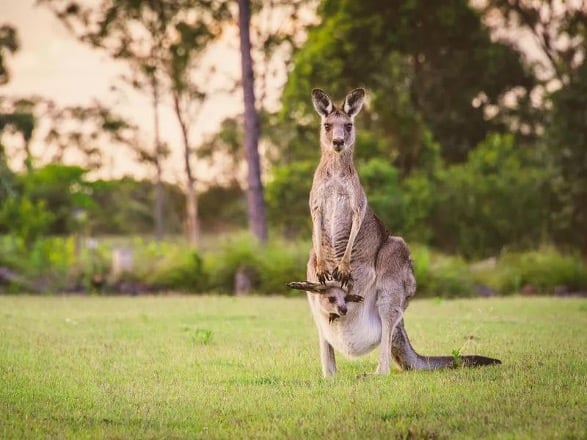
Andrew Coleman/Getty Images
They are tamable, but not domesticated. Even a tamed animal can turn on you if you do something to cause them to feel threatened. So even if you can keep a tamed kangaroo, you should not do it unless you are extremely knowledgeable on how to handle them.
Bengal Cats
Illegal Locations: Alaska, Connecticut, Delaware, Georgia, Hawaii, Indiana, Iowa, Massachusetts, New York, Seattle, WA, & Denver, CO
Bengal cats seem like an unassuming creature to be on this list. They are a hybridized version of a domesticated cat with an Asian leopard cat, and are among the most popular and intelligent cats you can find. Assuming that your Bengal cat is five generations separated from their Asian leopard cat ancestor, you should be fine to own one. However, there are some exceptions.

Getty Images
Hawaii, Connecticut, Seattle, Washington, New York City and a few other states and cities all ban these cats from being kept as pets. If you don’t live in a state that specifically bans the Bengal cat, you’ll likely still have to obtain a permit in order to own one. The U.S. Fish and Wildlife Service keeps records of these special permits.
Tiny Hamsters
Illegal Location: Hawaii
Hamsters are perhaps a surprising entry on this list; after all, they are tiny, cute, and tend to run on a wheel for much of the day. However, when you look at the grand scale of things, it actually makes sense that they are illegal to own as pets in Hawaii.

FRANCK FIFE/AFP/GETTY
This is because Hawaii’s ecosystem is relatively hospitable to hamsters. As such, if they get out, they may prove to be a menace to crops and wildlife if they manage to form colonies.
Jaguars
Illegal Locations: 21 Different States!
Jaguars have a number of things that cause them to be a bad fit for ownership, which justifies why many states have made them illegal for pet ownership. One of the obvious reasons is that they are quite dangerous. Jaguars can run at a staggering 50 miles per hour, so if they get the inclination to cause harm and are able to do so, there is not much that can be done to stop them. Besides the danger behind them, you also have to consider the viability of them as pets.

theconversation.com
Jaguars cannot actually be tamed or domesticated, but worse, attempting to move them from their natural habitat can be permanently harmful to their well-being. If you do such a thing and later attempt to reintroduce them to the wild, certain reports indicate that they may not be able to adapt back to this setting.
Cheetahs
>Illegal Locations: 21 Different States!
Cheetahs are banned from multiple states in the United States for similar reasons to jaguars and big cats, though there are some key differences. Where jaguars can run at 50 miles per hour, cheetahs are able to run at insane speeds, reaching up to 80 miles per hour. They are similarly dangerous, able to cause a lot of harm to anyone they fix their eyes on.

Ben Curtis, AP
One difference is that while they cannot be domesticated, they can be tamed. Still, if you are not able to take care of a big cat, this is simply not a good idea. They take a lot of care and require a lot of training and attention.
